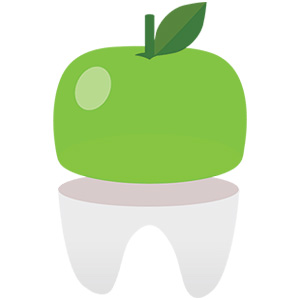From juice cleanses to gummy supplements — if you live in Brooklyn, it probably feels like you’ve seen every wellness trend in the book. And then some. But while we often think of these things in terms of how they impact our whole-body health, it’s also important to consider their effect on the teeth.
Our oral health is directly connected to our overall health and wellbeing, which means steering clear of tooth decay and gum disease is always important. But, it’s even more critical when you have braces or clear aligners, because teeth move most effectively and efficiently in a healthy oral environment.
In this post, I’ll be going over how some popular health and wellness practices measure up when it comes to your smile.
Wellness trends to avoid for your dental health:
Apple cider vinegar
Over the past few years, apple cider vinegar has been credited with spurring weight loss and managing blood sugar. Wellness Instagram influencers everywhere are recording themselves taking their morning shot of apple cider vinegar and twisting up their face in disgust. Unfortunately, all this effort may not be worth it. As the University of Chicago Medical Center reported, many of these claims are myths.
So what does apple cider vinegar do for your teeth? Unfortunately, nothing good. The acidic nature of the vinegar can wear away your enamel, which may cause tooth sensitivity, decay, and a darkening of your teeth.
Although the ACV health myths have been primarily debunked, if you are still keen on taking that morning shot, there are ways to protect your pearly whites! Dilute the apple cider vinegar with water and wait 45 minutes after you drink it to brush your teeth.
Brushing with activated charcoal
There’s no doubt you’ve seen charcoal toothpaste at the drugstore or charcoal teeth whitening products in social media ads. Brushing with activated charcoal is said to whiten teeth by soaking up impurities. Charcoal contains compounds that remove toxins, but it also comes from burning carbon-rich material like wood and coconut shells. This makes the substance gritty and abrasive to your teeth.
This abrasiveness does scrub away surface stains, making teeth temporarily whiter. However, the gritty nature combined with the fact that the black granules get stuck in the teeth and gums, causing you to brush harder, means the products can eventually wear away enamel. As the underlying dentin is exposed, your teeth will look yellow.
If you want to whiten your teeth during orthodontic treatment, I can give you guidance on the ideal teeth whitening options to maintain optimal oral health.
Online clear aligners
It takes years of specialty training in an orthodontic residency and plenty of case experience to know how to move teeth correctly and safely. Everyone’s teeth are unique so they will not respond to treatment the same way. Online clear aligners increase your risk of experiencing sensitivity, negative changes to your bite, receding gums, and irreversible damage to teeth and tooth roots.
While direct-to-consumer aligners are considered an affordable, fast way to improve your smile, the risks aren’t worth the negligible benefits (these aligners are only designed to make cosmetic improvements).
As a Brooklyn Spark™ Aligners provider and certified specialist in orthodontics, I can create a custom treatment plan that meets your needs and shifts your teeth into place in a way that promotes optimal oral health. If minor improvement is all you’re after, my team and I offer limited clear aligner treatment as well, so you can still straighten your teeth quickly and affordably but without sacrificing quality or safety.
Juice cleanses
Most nutritionists will tell you that sticking to a consistent diet is healthier than going on a week-long juice cleanse. As an orthodontist, I’d tell you the same.
Juice contains natural sugar and is often acidic. The acid in the juice lowers the mouth’s pH, while the bacteria in the mouth feed on the sugars, releasing their own acids. When you drink enough juice, it will erode tooth enamel and increase your risk of tooth decay.
Eating fresh, firm fruit and veggies is generally the better option. They contain healthy fiber and the texture of the fruit or vegetable helps scrape away plaque and bacteria as you eat it.
Kombucha
Kombucha originated in China and dates back to about 220 BC, but it has seen a resurgence. Similar to juice cleanses, kombucha and teeth are a growing concern for orthodontists and dentists alike. Kombucha has a dominant bacteria that creates acetic acid. As we know, acid wears down enamel and contributes to hypersensitivity. It’s also full of sugar, causing acid attacks from plaque and increasing your risk of cavities.
If you’re not prepared to put down the kombucha, try drinking it from a straw and, if you can, dilute it a bit with some water to reduce the acidity. Wait to brush your teeth for about 45 minutes after consuming it.
Gummy Supplements
From sleep gummies to gummy multivitamins, people are turning towards this tastier form of supplements. Whether many of the products actually work depends on the product and who you ask.
Are gummies bad for your teeth? Yes, they are. Most gummy supplements have added sugar, which, again, feeds the bacteria in the mouth. They’re also acidic and get stuck in the teeth. This means the acid attacks go on for longer, potentially causing more enamel erosion and, ultimately, tooth decay.
Of course, having a gummy vitamin here and there and brushing and flossing after isn’t going to leave you with a mouthful of cavities. But if you’re taking multiple gummies a day, especially ones high in sugar, and not removing the excess from your teeth, then you’re increasing your risk.
Your best bet is to try to get the majority of your vitamins and minerals from food. If you don’t like swallowing pills and need a gummy supplement to fill in the gaps, choose one without added sugar and clean your teeth after eating it.
Wellness trends that won’t damage your teeth:
Non-dairy milk
In recent years, non-dairy milk has been all the rage in our afternoon lattes and in our kids’ breakfast cereal. However, regarding your teeth, there are two potential concerns: Non-dairy milk may increase the risk of cavities and doesn’t always contain the calcium needed for strong enamel.
That said, choosing the right non-dairy milk won’t damage your teeth. It is advised that you look for plant-based milk with at least 120 milligrams of calcium per 3.4 fluid ounces. Unlike regular milk, many non-dairy cartons are sweetened, so it is important to pick an unsweetened option to avoid excess sugars.
Oil Pulling
Many of our patients have recently asked: does oil pulling work? The technique is actually not a new wellness trend. It’s an ancient practice with roots in Ayurvedic medicine. However, it’s gained popularity in recent years because it’s affordable, natural and doesn’t have any negative side effects, as long as you’re not allergic to the oil you use.
Oil pulling involves swishing oil around in your mouth. The goal is that once you spit it out, the oil has caught all kinds of bacteria and food debris. It’s thought that oil pulling is beneficial to both oral and systemic health.
More research needs to be done to determine how effective oil pulling is and the mechanisms behind it, but that said, it won’t damage your teeth and it may have a positive effect when practiced in combination with regular brushing and flossing.
Matcha
Swapping coffee for matcha is another wellness trend that isn’t new. Traditionally consumed in East Asia, matcha is a powdered form of processed green tea leaves. It’s antioxidant rich and contains a combination of caffeine and l-theanine, which helps to reduce the crash you get from other caffeinated drinks.
Also, coffee causes a higher spike in cortisol levels than matcha does and high cortisol levels are tied to inflammation and even teeth grinding. Additionally, matcha contains fewer stain molecules than coffee, which is a plus for those looking to whiten their smile.
A deciding factor when determining if matcha is better for you than coffee is what you put in it. Many New Yorkers add cream and sugar to their coffee, which, as you know, is not good for your teeth. Including these in your matcha does not make this green tea substitute a better alternative in terms of your oral health. To keep it smile-friendly, hold off on or minimize the sweeteners.
Maximize your oral health with a Brooklyn orthodontist
When it comes to some popular wellness trends like drinking apple cider vinegar and brushing with charcoal, the benefits do not outweigh the cost to your oral health. As for others, with a few tweaks, they can be a health-boosting addition to your routine.
If you’re ready to improve your oral health and get your brightest smile, schedule a complimentary consultation at Fresh Orthodontics in Brooklyn today!














